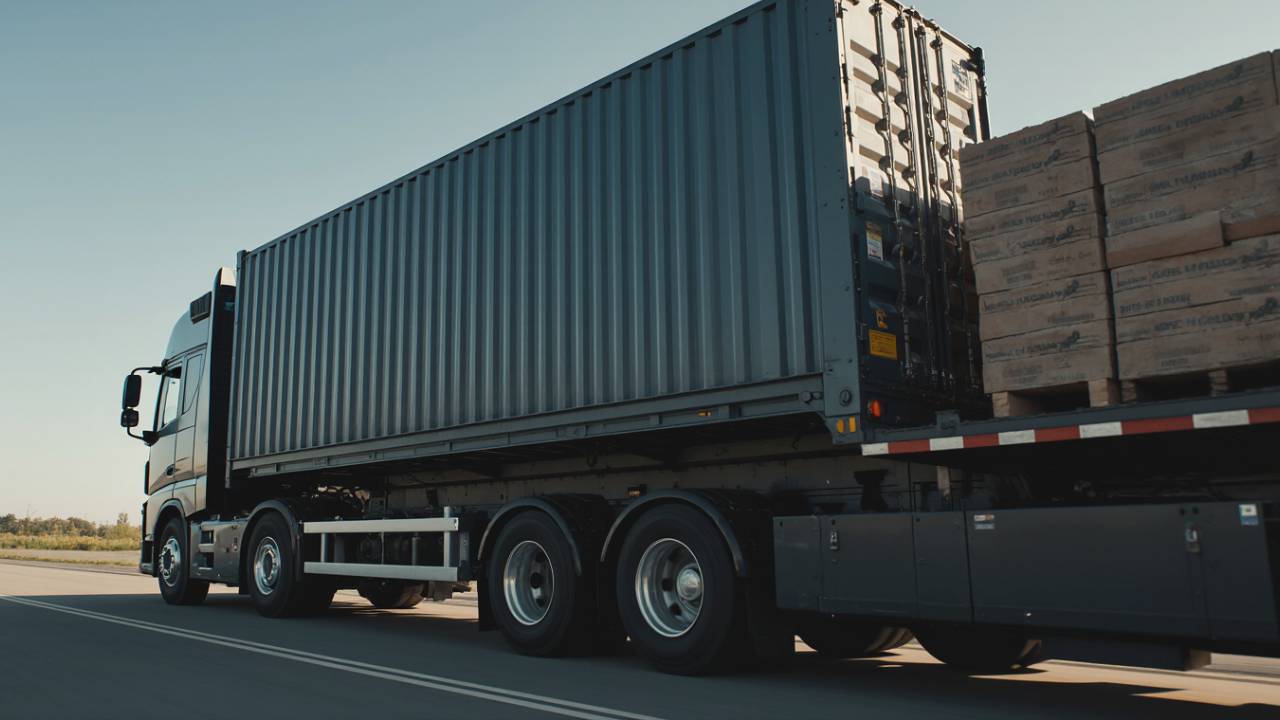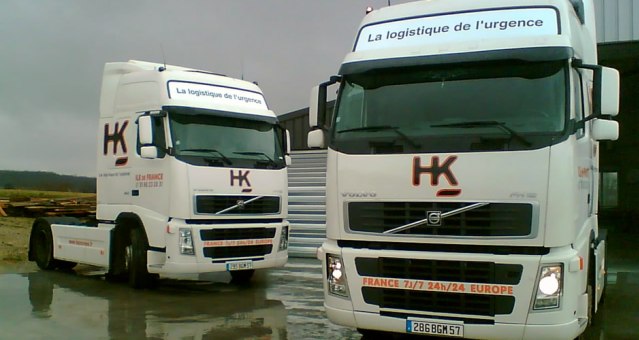Transport chartering: definition, advantages... deciphering a key logistics lever
At a time when the speed and reliability of deliveries have become major challenges, chartering has become a strategic solution for the transportation of goods.
Whether you need to send bulky goods on a one-off basis, or manage your freight on a regular basis, understanding how chartering works can help you manage your supply chain more effectively.
HK Courses, specialist in express transport and customized chartering, explains everything you need to know about this essential mode of transport.

Transport chartering: clear definition of a logistics pillar
Chartering is the practice of entrusting the transport of goods to an external service provider (often a carrier or logistics operator) without mobilizing its own vehicles. The client becomes the customer for the operation, and a chartering contract is drawn up between the parties.
Unlike traditional courier or grouped delivery solutions, chartering allows you to benefit from a dedicated vehicle, adapted to the type of freight to be transported (dry, refrigerated, hazardous, etc.), on a specific route, with direct pick-up and no load breakage.
Need urgent transport anywhere in France?
Call us on 0806 000 299*
Our multilingual teams answer you from 8am to 6pm
* Special toll-free number
service reserved for professionals
By road, sea or air: which charter for which goods?
Road chartering
This is the most commonly used mode. It involves chartering a vehicle (from small vans to heavy goods vehicles) to transport goods overland. Road chartering is particularly appreciated for its speed, flexibility and ability to serve areas not covered by other means of transport.
Marine chartering
Used for high-volume international trade, sea chartering enables goods to be transported by sea, thanks to the leasing of a vessel or space on board.
Air charter
Air charter is preferred for urgent, sensitive or high-value shipments. It guarantees very short lead times, often within 24 or 48 hours for international shipments, and maximum security.
The role of the charterer and the freighter
- The charterer is the company (or client) that entrusts the transport to a third party. He chooses the type of transport, determines the delivery conditions and supervises freight management.
- The freight forwarder is the carrier or transport company that makes its vehicles, drivers and resources available to carry out the mission.
Why is chartering essential to your transport strategy?
Optimizing logistics costs
One of the main advantages of chartering is cost control. Rather than investing in a fleet of vehicles, the company pays only for the journeys made. This smoothes out logistics expenses, avoids fixed costs (maintenance, insurance, salaries) and offers competitive rates based on volume and frequency.
Flexibility and adaptation to specific needs
Every company has unique needs: express deliveries, temperature-controlled transport, staggered working hours, and so on.Chartering offers a tailor-made solution, totally adjustable to the context. Thanks to a dedicated vehicle, goods are delivered directly, without transshipment, reducing the risk of delays or breakage.
Access to an extensive network of carriers
When you call on a chartering specialist like HK Courses, you gain access to a large network of reliable carriers, selected for their punctuality, their equipment and their ability to deliver under the best possible conditions. This enables us to efficiently cover the whole of France and the rest of the world, whatever the type of freight.
What a charter contract contains
Key elements of the contract
The charter contract formalizes the agreement between the company (charterer) and the carrier (shipper). It sets out the terms and conditions of the transport service, and generally includes the following elements:
- The nature of the goods being transported: this includes the type of products, their characteristics (fragile, bulky, dangerous...) and the specific precautions to be taken.
- Loading and delivery locations: the contract specifies the exact address of the point of departure and the final destination, to guarantee traceability of the journey.
- The type of vehicle used : this determines which vehicle is best suited to the task (van, HGV, refrigerated truck, etc.), depending on the volume and constraints of the goods.
- Delivery time: the contract specifies a delivery date or time slot, with possible clauses in the event of delay.
- The agreed price: this indicates the price of the service, the terms of payment, and any additional charges (tolls, handling, waiting, etc.).
The responsibilities of each party
- The charterer is responsible for providing accurate and complete loading information.
- The shipper undertakes to deliver the goods within the agreed time and conditions. He is responsible for the safety of the transport throughout the journey.
Duration and cancellation conditions
Contracts may be one-off orrenewable as required. In the event of early termination, specific clauses (deadlines, indemnities) must be respected. Good contract management secures the relationship between the parties and avoids disputes.
Freight chartering: the efficient response to modern logistics challenges
Transport management systems (TMS)
A TMS (Transport Management System) is a software tool for planning, monitoring and optimizing freight operations. It centralizes data, automates assignment of missions to carriers, and provides real-time visibility on deliveries.
HK Courses uses an advanced TMS to ensure seamless management of its customers' shipments.
Freight exchanges and their role
Freight exchanges bring charterers and carriers together according to supply and demand. They enable you to quickly find an available vehicle and optimize empty runs. Although very useful, their use requires a good knowledge of the market to avoid unreliable partners.
The importance of digitalization in chartering
Digitalization is profoundly transforming logistics. From online order taking to GPS tracking of deliveries and paperless document management, digital tools are improving responsiveness, traceability and customer satisfaction. HK Courses has made technology a central pillar of its chartering offer, to provide its customers with a fluid, secure and high-performance experience.
Need urgent transport anywhere in France?
Call us on 0806 000 299*
Our multilingual teams answer you from 8am to 6pm
* Special toll-free number
service reserved for professionals


